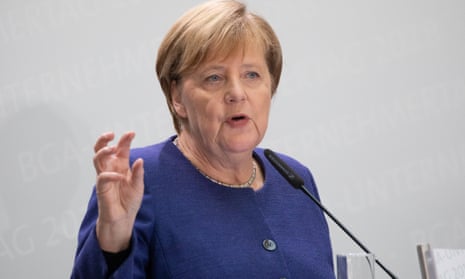At every step of the Brexit process, there has been a reliable way to predict what the European Union will do. This technique yields top intelligence on the motives of the key continental players. It is devilishly simple, too. The trick is to listen to what they actually say.
The inevitable dynamic of the negotiations was spelled out even before the referendum result was known. Angela Merkel described it, three weeks before polling day. The German chancellor was reluctant to intervene in domestic British debate, understanding that anything she said would be seized upon by the leave campaign as proof of meddling by beastly foreigners. (And in paranoid Eurosceptic folklore, none are beastlier than the Germans.)
But Merkel also saw how important facts were not being aired in the campaign. She expressed a “personal hope” that Britain would stay in the EU and added that to leave would be to surrender influence, because the best deals were done on the inside. The UK, she warned, would not find it comfortable negotiating from “outside the room”.
Merkel was right. From the moment the article 50 trigger was pulled, the Brexit process has followed an EU timetable on terms defined by EU treaties. At every stage, European leaders have repeated the golden rule, in private, in public, in print: privileges of membership are unavailable to non-members. Britain must decide what it likes about its current arrangements and then negotiate a price for retaining them. The latest terms and conditions have been regularly updated on the European commission’s website.
This has made it easy to test the feasibility of any idea offered up by a Brexit supporter. First, examine what the plan involves in terms of keeping a benefit of EU membership (frictionless movement of goods across borders, for example). Then ask what the plan’s author is willing to surrender, as a budget contribution or by submission to European court jurisdiction. If the answer is nothing, the proposal can be ignored.
When this test is applied, everything Boris Johnson has said on the subject of Brexit, including his latest “Super Canada” notion, is exposed as bilge. Strip away Johnson’s rococo verbiage and you find refusal to accept that Brexit involves any cost to Britain. Yet the underlying reason he left the government, alongside David Davis, was shame at feeling the cost up close. To continue in the cabinet would have meant owning the weakness of one national government trying to negotiate with a continental bloc.
Few things have demonstrated the logic of the European project as effectively as the spectacle of hollow Eurosceptic rhetoric bouncing off the wall of continental unity – and back into the faces of people who didn’t believe Britain had anything to gain from that kind of solidarity.
The only surprise for the EU side has been the obstinacy of British politicians ignoring what their counterparts in Brussels, Berlin and Paris have been saying and their cowardice in refusing to pass the message on to voters. This isn’t a symptom of foreign politicians being more virtuous. Honesty is pretty evenly distributed among nations. It is simply a feature of a multinational union that common positions, once established, are not readily changed. And in the case of Michel Barnier’s mandate as the EU’s chief negotiator there has been no incentive for member states to break ranks.
Brexit is just one of the EU’s problems and not the hardest one. The financial stability of the eurozone; migration across the Mediterranean; trade war with Donald Trump; populist demagogues undermining the rule of law in Poland, Hungary and Italy; cyber-sabotage by the Kremlin – those are the pressing items on a Brussels to-do list. And while every EU member has an interest in Brexit being settled safely, and many governments profoundly wish Britain would stick around to help grapple with Europe’s collective woes from inside the room, the act of leaving means automatically having your own national needs downgraded. And goodwill towards a neighbour and ally doesn’t translate into indulgence of every rancid burp of an idea rising from the guts of a Tory party struggling to digest its historic miscalculation.
None of this is meant to romanticise Brussels’ handling of Brexit. I have heard European diplomats complain about intransigence on their own side in terms much like the frustrated laments that echo around Whitehall. A common gripe is that the French and Germans are too spooked by fear of nationalist contagion; too fixated on the need for Euroscepticism to be exposed as a road to nowhere. But even in capitals traditionally attuned to the British position in Europe, where disappointment at the UK’s departure is greatest, there are no hidden wells of eagerness to bail out Theresa May. The calculation is the same: every leader with a seat at the summit table where Brexit matters are ultimately decided values that seat more than they value any aspect of their bilateral relationship with the UK. And May isn’t at that table.
This is what Merkel was talking about in June 2016. Her one foray into the debate was dismissed by leavers as a denigration of British economic clout and an affront to democracy, but it was no such thing. It was just maths. Many countries together are greater than one. That was the argument for Europe all along and it is the reason why Brexit is failing; why it was always going to fail.

